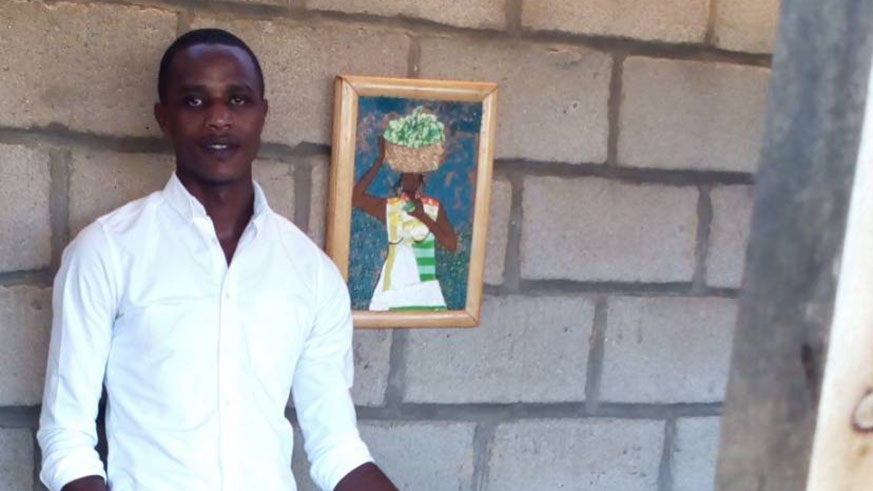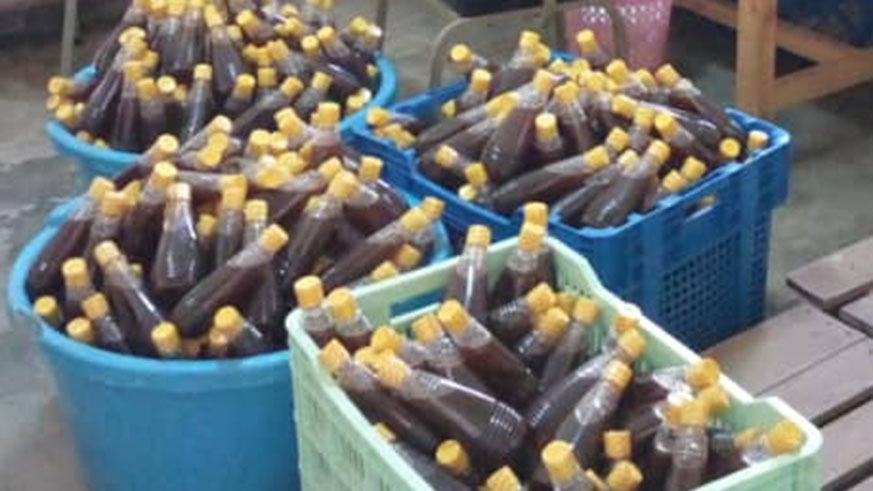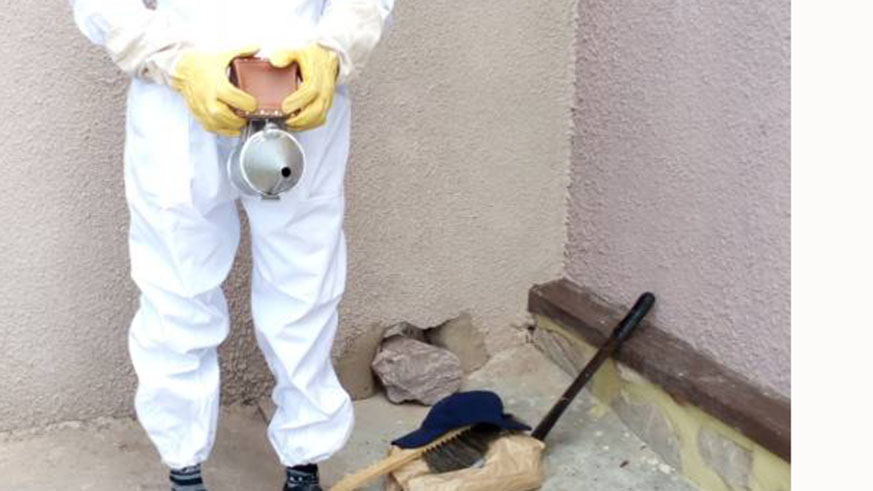
Niyoyita poses for a photo. All photos / Joan Mbabazi.

Some of the honey ready for the market.

Niyoyita dressed for honey processing
